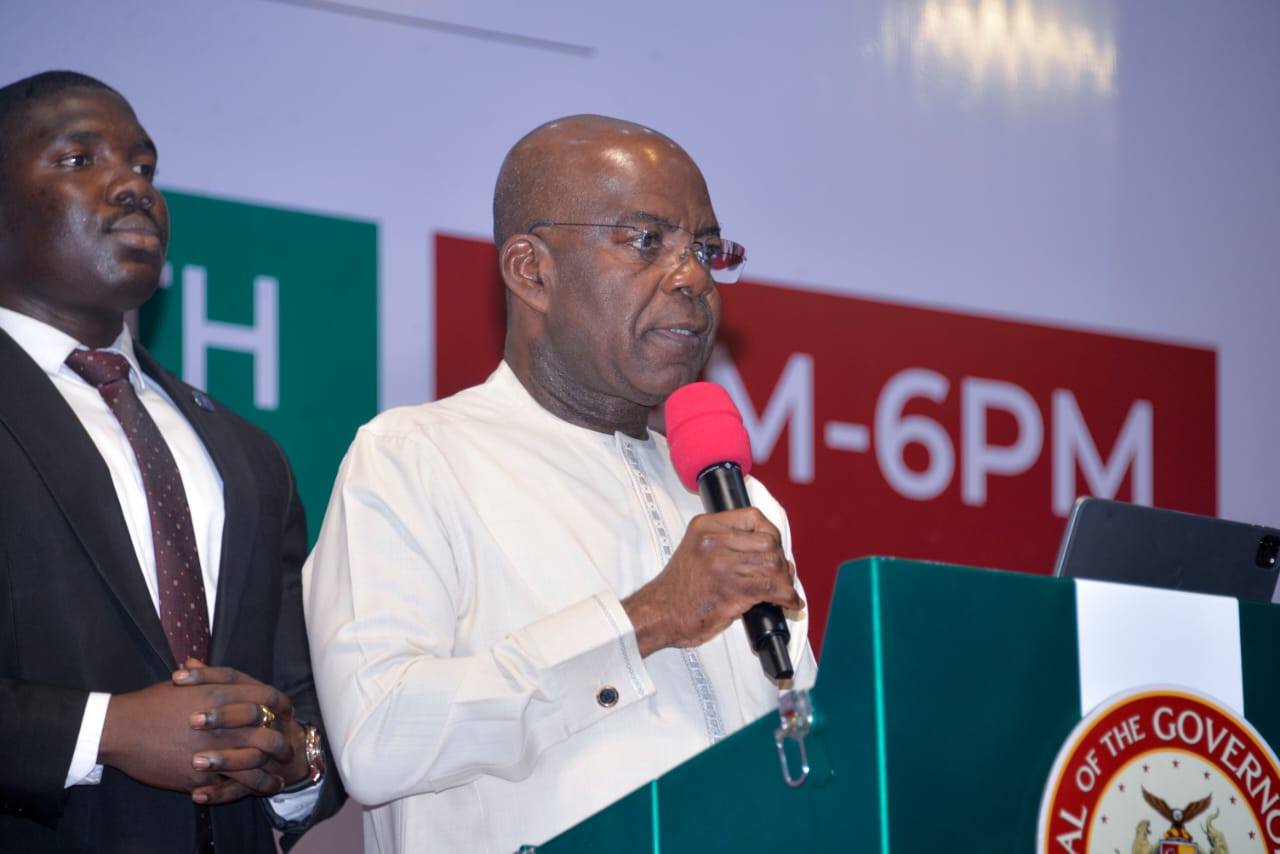
* Calls for massive scale-up in education, protection, immunisation
By Funmi Ogundare
The United Nations Children’s Fund (UNICEF) has warned that Nigeria will lose millions of children to preventable causes
and lifelong deprivation unless the country urgently accelerates investments in education, child protection, water, sanitation and routine immunisation.
UNICEF Representative in Nigeria, Ms. Wafaa Saeed, made the call at the World Children’s Day event themed, ‘Equipping
the Nigerian Child for the Future: How Prepared Are We’, organised in collaboration with the Nigerian Guild of Editors (NGE) in Lagos.
Saeed explained that although progress has been recorded in the last two decades on the state of children in the country, the pace remains far too slow to meet the scale of challenges they face.
“If we continue at this rate, so many lives of children will be lost, so many opportunities will be lost. We have to do something different. We need to invest more, do more and scale up,” she said.
Saeed lamented the rise in grave violations against children, including abductions, recruitment by armed groups and attacks on schools, warning that girls remain especially vulnerable.
She described Nigeria’s experience as striking, noting that she had worked across continents but found the level of threat faced by schoolgirls particularly alarming.
“Education can never be the casualty of conflict or insecurity. Schools must always be safe places for children to learn, and communities must be confident that their children are protected,” she said.
The UNICEF representative called for full implementation of the Safe Schools Declaration, which Nigeria endorsed in 2015, including commitments on physical school safety, teacher training, protection from violence and hazard preparedness.
On water, hygiene and sanitation, Saeed raised concerns that millions of children continue to learn and receive healthcare in facilities without clean water or hand washing points.
She added that the absence of sanitation facilities in schools contributes to girls dropping out, particularly during menstruation.
“This is very critical and must be addressed if we want girls to remain in school,” she noted.
The UNICEF representative also emphasised the importance of routine immunisation, explaining that children cannot have a good start in life without vaccines, adequate nutrition and exclusive breastfeeding.
She appealed to the media to keep immunisation at the forefront of public discourse.
“Strengthening routine immunisation at the primary healthcare level will save so many lives,” she said, praising the dedication of young health workers she met during recent field visits.
In his remarks, the Consul General of the Kingdom of the Netherlands in Nigeria, Michel Deelen, explained that Nigeria
cannot achieve meaningful progress until its schools function effectively.
He described the poor state of many learning environments as disgraceful, saying that no economic indicator, whether rising oil revenues, improved macroeconomic numbers, or declining inflation will matter if children lack access to quality education.
According to him, “As long as the schools are not running as they’re supposed to run, nothing goes better. Every parent, every adult, has to realise the importance of education.”
The envoy lamented that millions of Nigerian children still attend schools without roofs, teachers, water, or basic facilities. He said this reality contradicts the shared global understanding expressed through the United Nations and UNICEF that every child deserves a safe and supportive learning environment.
“It is a disgrace, because it shouldn’t be like that,” he said, noting that many children across the country do not have equal opportunities.
“Looking at you, I’m sure you come from a fine school. But you know there are many schools in this country that have no roof, no borehole… no teachers?” he asked.
Deelen commended UNICEF for its work in improving schools, expanding access to clean water, and supporting children’s development, adding that the agency relies on strong partnerships with governments, civil society, journalists, and the international community.
He emphasised the Netherlands’ ongoing support for UNICEF’s water projects in Nigeria and referenced Generation
Unlimited, a global initiative the Dutch government backs to help young people learn skills and develop small businesses.
While celebrating the children in attendance, the Consul General urged authorities to urgently reposition the education sector so that Nigeria can produce the next generation needed for national development.
“The future is you,” he told the children. “But all together, we have to make sure everything is steered in the right course. At this moment, things are not the way they are supposed to be, and I do hope the authorities in charge will make sure we get back to where we should be.”
He added that The Netherlands would continue partnering with UNICEF and supporting efforts aimed at giving every Nigerian child the opportunity to learn, thrive and shape a stronger nation.
President of the Nigerian Guild of Editors, Eze Anaba, called on the media to act decisively on issues affecting children, noting that journalists are not passive observers but active participants in shaping public consciousness and influencing policy.
He urged journalists to amplify the voices of children, report with accurate data, highlight successful child-focused initiatives, and engage in solution-based investigative journalism.
Civil society, he said, plays a crucial role as the bridge between communities and national stakeholders, generating community-driven solutions, providing child protection services, and ensuring accountability.
“The media should amplify these efforts to inform national policy,” he stated.
Government, he added, bears the primary responsibility to protect children, enforce laws securing their rights, invest robustly in education, healthcare and social protection, and secure schools and communities from violence, adding that collaboration with the media and civil society is essential to build trust and transparency.


